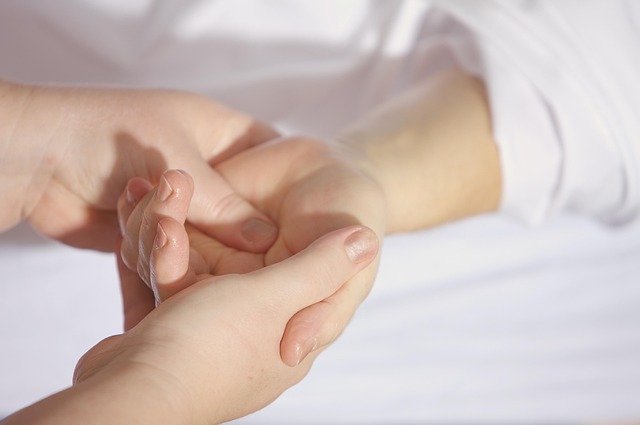Understanding the Daily Realities of Nursing and Caregiving in the UAE
Nursing and caregiving play a central role in the UAE’s fast-growing healthcare environment.People entering these fields often discover a professional rhythm that feels different from what they knew before — shaped by cultural diversity, high standards of care, and the unique pace of life in the region.From emotional aspects of the job to daily routines and communication styles, the caregiving profession in the Emirates carries its own identity.What do professionals notice when they join this field, and how does the environment influence their daily experience?

Healthcare professionals working in the UAE encounter a distinctive work environment that combines international standards with regional cultural considerations. The country’s position as a global healthcare hub attracts medical professionals from around the world, creating multicultural teams that serve an equally diverse patient population.
Everyday Routines of Nurses and Caregivers in the UAE
Daily schedules for healthcare workers in the UAE typically begin early, with many facilities operating on 12-hour shifts to ensure continuous patient care. Morning routines involve comprehensive patient assessments, medication administration, and coordination with multidisciplinary teams. The structured approach to patient care includes detailed documentation requirements that meet both local health authority standards and international accreditation criteria.
Nurses often manage patient loads that vary depending on the facility type and specialization. Emergency departments in major cities like Dubai and Abu Dhabi maintain high-intensity environments, while long-term care facilities focus on rehabilitation and chronic condition management. Technology integration plays a significant role, with electronic health records and automated medication systems streamlining many routine tasks.
Emotional and Cultural Aspects of Caregiving
Cultural sensitivity forms a cornerstone of healthcare delivery in the UAE. Healthcare professionals regularly interact with patients from over 200 nationalities, requiring awareness of diverse religious practices, dietary restrictions, and communication preferences. Islamic cultural considerations, including prayer times and fasting periods, influence care scheduling and treatment planning.
Emotional resilience becomes particularly important when supporting families through difficult medical situations. Many healthcare workers develop skills in cross-cultural communication, learning basic phrases in Arabic, Hindi, or other commonly spoken languages to better connect with patients and their families.
How Professionals Adapt to a Diverse Care Environment
Adaptation strategies include ongoing cultural competency training and language learning opportunities provided by healthcare institutions. Many facilities offer orientation programs specifically designed to help international staff understand local customs and healthcare regulations. Professional development often includes workshops on cultural awareness and communication techniques.
Team collaboration takes on added dimensions when working with colleagues from various educational backgrounds and healthcare systems. Standardized protocols help ensure consistency in care delivery while allowing for cultural adaptations when appropriate. Regular team meetings and case discussions facilitate knowledge sharing across different cultural perspectives.
The Unique Pace of Healthcare in Fast-Growing Cities
Urban healthcare environments in the UAE reflect the country’s rapid development and growing population. Emergency services experience varying demand patterns influenced by the international business community, tourism seasons, and major events. Healthcare facilities continuously expand their services to meet increasing demand, creating opportunities for professional growth and specialization.
Technology adoption occurs at an accelerated pace, with many facilities implementing cutting-edge medical equipment and digital health solutions. This technological integration requires continuous learning and adaptation from healthcare staff, contributing to a dynamic work environment that emphasizes innovation and efficiency.
What Stands Out When Entering the Caregiving Field
New healthcare professionals often note the emphasis on patient-centered care and family involvement in treatment decisions. The healthcare system’s focus on preventive medicine and wellness programs creates opportunities to engage with patients beyond acute care settings. Professional recognition and career advancement pathways are clearly defined, with many institutions supporting continuing education and specialty certifications.
| Role | Healthcare Setting | Key Responsibilities |
|---|---|---|
| Registered Nurse | Hospital Ward | Patient assessment, medication administration, family communication |
| Critical Care Nurse | ICU/Emergency | Advanced monitoring, emergency response, specialized procedures |
| Home Care Nurse | Community Settings | Chronic disease management, patient education, family support |
| Specialized Caregiver | Long-term Care | Daily living assistance, rehabilitation support, emotional care |
The healthcare profession in the UAE offers a unique blend of professional challenges and cultural enrichment. Healthcare workers develop enhanced communication skills, cultural awareness, and adaptability while contributing to a healthcare system that serves one of the world’s most diverse populations. The experience provides valuable international exposure and professional development opportunities that benefit both individual careers and the broader healthcare community.
Working in UAE healthcare settings requires flexibility, cultural sensitivity, and commitment to continuous learning. The multicultural environment creates opportunities for professional growth while contributing to a healthcare system that bridges traditional values with modern medical practices.




